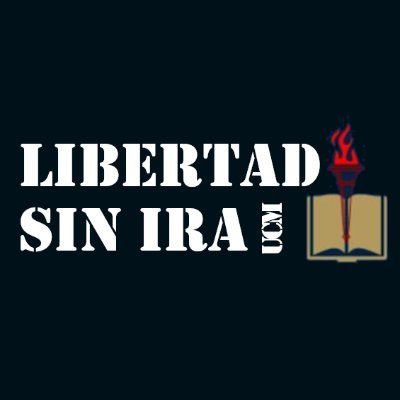
Shouts of “liberty, liberty” prevailed over an attempt to silence opposition leaders to three of Latin America’s most repressive regimes.
The student group Libertad Sin Ira (Liberty without Anger) organized a panel discussion at the Complutense University in Madrid on December 13th with Cuban activist Yunior García, Venezuelan opposition leader Leopold Lopéz, and Nicaraguan opposition leader Santiago Urbina. As the event was about to begin, approximately thirty students entered the hall shouting, “Facistas get out of the university” and carrying signs reading “Get out Miami mafia, overthrowers!”
After verbal altercations between the two groups of students, the protestors left, and the three invited speakers retook the stage to cheers from the supporting students.
Yunior García, an actor and activist from Cuba, opened the panel hoping that “scientists discover a vaccine against intolerance. The laboratory for this vaccine is the university and that’s why we’re here,” Lopéz picked up on the theme. “If there isn’t tolerance and debate and courage so that it’s the ideas that can qualify or disqualify and not the violence, a society is, without a doubt, sick.”
The three speakers also vindicated their experiences living in totalitarian regimes against those who are convinced by propaganda and ideology that Venezuela, Nicaragua, and Cuba are free, democratic states.
Leopoldo López @leopoldolopez y Yunior García @yuniortrebol nos contarán sus vivencias personales en la lucha por la libertad en #Venezuela y #Cuba 🇻🇪🇨🇺
— Libertad Sin Ira UCM (@LibertadSI_UCM) December 9, 2021
📍 Salón de Actos, Facultad Políticas UCM
🕖Lunes 13/Dic – 17:00
Os esperamos!!! pic.twitter.com/bTvlFupT3b
García said that though his country has not had a democratic government in 70 years, “the fiction, that fabulous story about the blue unicorn of a perfect Cuba” persists. He described “the real Cuba” as a society lacking in basic provisions such as clothing and medicines, where the media is completely controlled by the government, censorship looms over artists of all kinds, and the country’s democratic laws—such as the right of citizens to protest—are not in reality respected by the government.
“The movement of San Isidro started in a very poor neighbourhood against this censorship,” he said as he explained the beginning of the wide-spread protests against the Cuban government that started last summer.
García became a leading figure in these protests and was arrested along with hundreds of other protestors. He said that while he is free now because he is a well-known actor, eight hundred protestors are still in prison, some of them children. He has since helped form ‘Archipielago,’ which he described as a “plural platform,” not a political party or even a political movement.
“We don’t want to substitute one single-thought government for another single-thought government,” he said.
Both Lopéz and Urbina described similar situations in Venezuela and Nicaragua—governments that came into power on promises of free elections and civil liberty but then consolidated that power into a dictatorship with a veneer of democracy.
Lopéz has been in Spain since October 2020, when he fled Venezuela after five years of imprisonment for his political opposition to the regime. “This is my story but there are millions and millions of stories like mine in Venezuela,” he said.
He encouraged Spaniards to listen to their stories, “the story of how suffocated liberty ended up suffocating everyone.”
One of Lopéz’s fellow exiles is Néstor Rojas, 60, a poet laureate, painter, and writer. He was awarded Venezuela’s national prize for poety in 2016, but in his opposition to the Chavez and Maduro regimes, he found himself unable to teach or publish, hunkered down in his home in Caracas. He came to Spain in 2018 as a political asylee. He now lives in Astorga, in northwest Spain, where he runs a used bookstore, writes, and leads poetry workshops.
Like Lopéz, he too has found that a certain sector of Spaniards negates his personal experience in Venezuela in support of a romantic vision of communism.
“Very few people know what is really happening in Venezuela,” he said in an interview with The European Conservative, adding that Venezuela is suffering from hyperinflation orchestrated by the government, a complete lack of safety in everyday life, and political repression. “In some parts of the world they sell the regime as libertarian but it’s a special dictatorship, a narco-dictatorship.”
“We all have the same story,” Angie Zarraza, 43, concurred. “We all left fleeing hunger, insecurity, and oppression. We couldn’t afford anything anymore. When they steal the grocery bags right out of your hand, you can’t live like that.”
She worked in the hotel business in Venezuela and came to Spain under international protection with her teenage son, her mother, and her sister, who she said was a former government employee then persecuted for her opposition to the regime.
“It’s frustrating,” she said about encountering Spaniards who try to convince her that communism is good. “I’ve come from this socialism-communism. It’s what Chavez applied, and it doesn’t work to build up a country.”
High government officials from the centre-left socialist party, the Spanish Socialist Workers’ Party (PSOE), have held furtive meetings with top officials of the Venezuelan regime. The PSOE is currently governing in coalition with the neo-communist party Unidas Podemos, whose founders are suspected of receiving payments from Venezuelan dictators Hugo Chávez and Nicolas Maduro. Many of the founding members of Unidas Podemos were students and faculty at the department of political science at Complutense University where the event was held.
The event was organized to “improve the image of the department” student organizers said.
